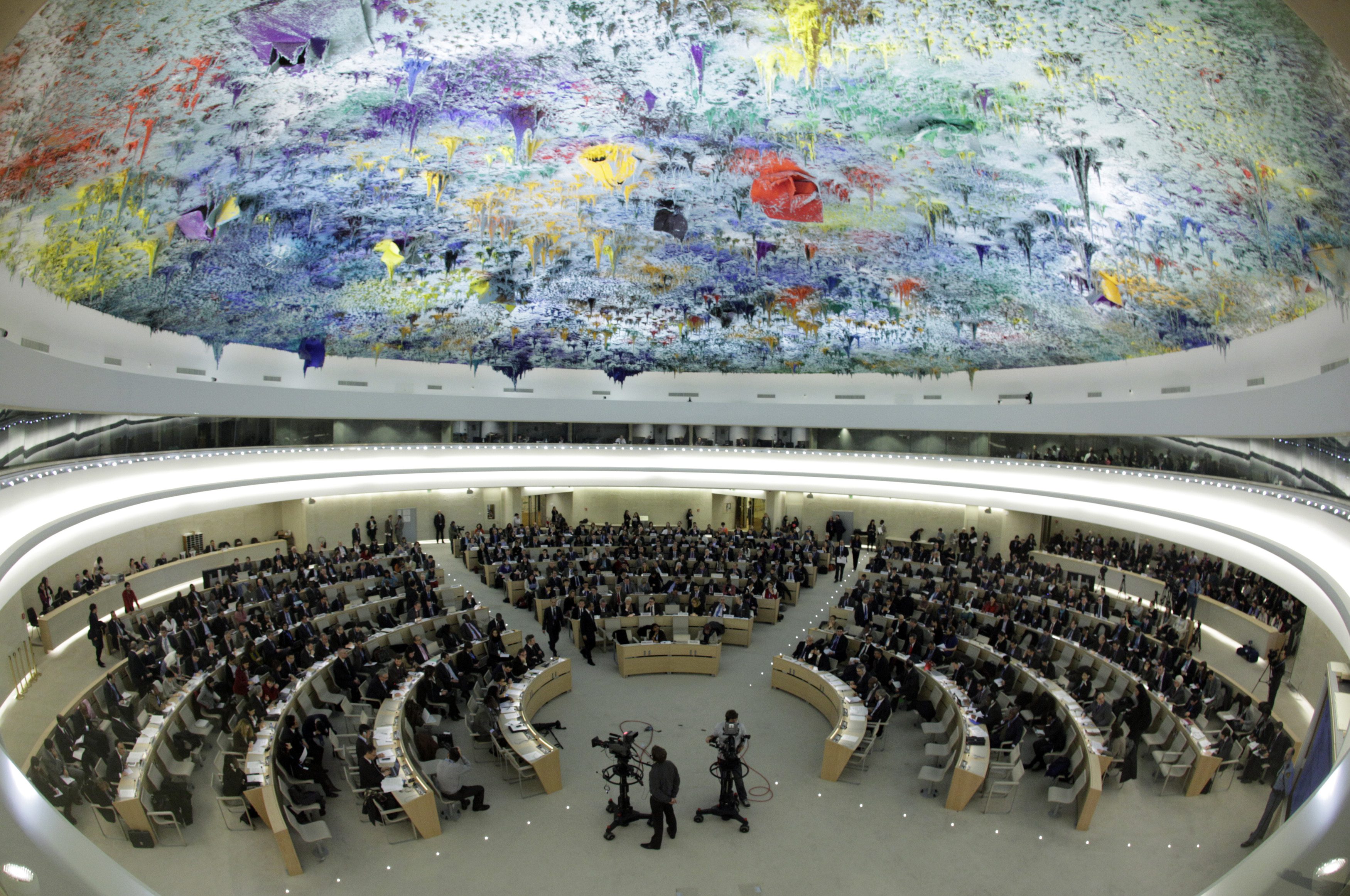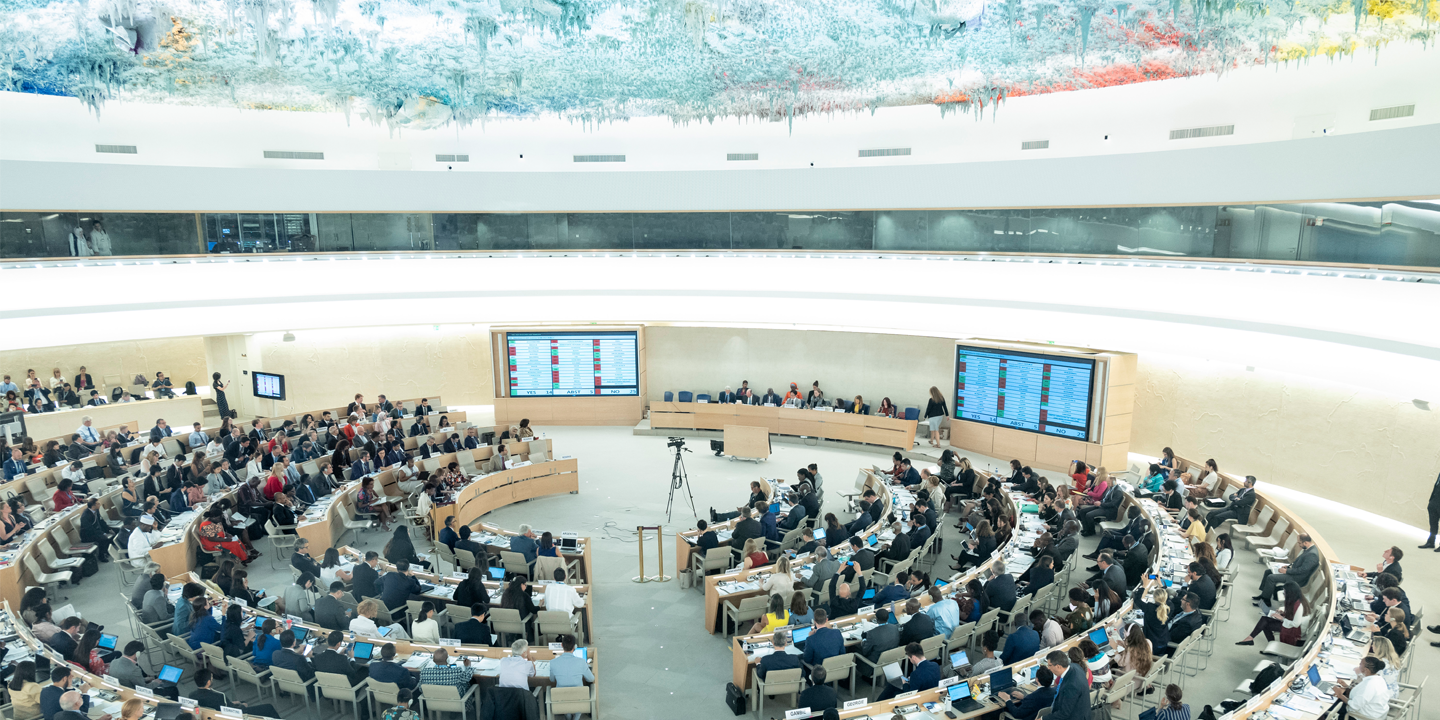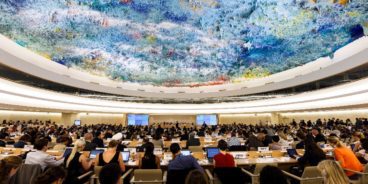

Statement delivered on behalf of members of the Group of Friends of R2P on Item 3 at the 47th session of the Human Rights Council
Madame President,
I have the honour to deliver this statement on behalf of members of the Group of Friends of the Responsibility to Protect (R2P). A list of co-sponsors is available on the Extranet.
We thank the UN Special Adviser on the Prevention of Genocide, Ms. Alice Wairimu Nderitu, for her continuous efforts and urge her, in line with her mandate, to expand and elevate the Joint Office’s leadership to raise awareness on the causes and dynamics of genocide, to alert relevant actors in situations at risk and to mobilize the international community to take appropriate action to turn “never again” from a promise into reality.
The global COVID-19 pandemic has led to a further increase in stigmatisation, hate speech, xenophobia and intolerance, exacerbating existing vulnerabilities and increasing protection challenges for vulnerable populations around the world. Women and girls are often disproportionately impacted by atrocities, and the international community must integrate a gender lens to preventing and responding to atrocities. More than ever, prioritizing the protection and promotion of human rights remains critical to uphold our shared responsibility to help protect populations from genocide, war crimes, crimes against humanity and ethnic cleansing.
History has taught us that genocide and other atrocities do not occur without warning – rather, they are often preceded by long-standing patterns of human rights violations and abuses, discriminatory policies and practices and the exclusion and targeting of vulnerable groups. It is therefore our belief that genocide and other atrocities are preventable if early warning signs and risk factors are taken seriously and action is taken to address them. The UN human rights system – including the Office of the High Commissioner for Human Rights, Special Procedures, the Universal Periodic Review (UPR), Treaty Bodies and other relevant Geneva-based human rights mechanisms and procedures – can play a particular role in helping governments better understand and identify existing gaps and opportunities to mitigate unique risk factors particular to their country, and to provide necessary recommendations to prevent crises from escalating. At the same time, by investigating past atrocities, identifying root causes and contributing to processes of accountability, HRC investigative mechanisms can play a vital role in contributing to non-recurrence of atrocity crimes.
Although Special Rapporteurs and other Independent Experts are often the first ones to warn of risk factors leading to genocide and other atrocities, the international community is not yet systematically utilizing Special Procedures as a mechanism to identify and address risk factors for atrocities. Furthermore, progress can be made in utilizing the UPR to institutionalize genocide and atrocity prevention by encouraging States to conduct national risk assessments. We encourage States to provide targeted, atrocity prevention-related recommendations to other governments under review; and to ensure that relevant Special Procedures are directed to conduct atrocity risk assessments in accordance with their mandates.
At the national level, the UN human rights system has a unique potential in identifying areas for domestic reform, including protections for women and persons belonging to minorities, legislation against incitement to violence or strengthening atrocity prevention through education curricula that promote diversity, foster social solidarity and acknowledge past atrocities. Governments should utilize the information provided through Geneva-based human rights mechanisms to design holistic, government-wide atrocity prevention strategies and policies to assess and identify national vulnerabilities, strengthen societal resilience and build strong national mechanisms and institutions to mitigate risk factors and prevent or respond to atrocity risks.
As emphasized in Resolution 43/29, civil society organizations (CSOs) are also instrumental in raising alarm when risk factors emerge. We call on States to systematically work with CSOs, national human rights defenders and national human rights institutions to strengthen domestic prevention policies. Many upstream risk factors for vulnerable populations require addressing cross-cutting issues and integrating policies and programs through systemic change. When states work with communities and non-government actors to generate change, success is more likely.
We strongly encourage the application of the UN Framework of Analysis for Atrocity Crimes by all relevant mechanisms and procedures. We also encourage the Joint Office to update the framework based on best practices and lessons learned since 2014 and to develop additional guidance and tools for member states on atrocity prevention. Active and intensified collaboration with the office of the Special Adviser can help the HRC to better address escalating crises more effectively and discuss options for how to appropriately respond. In this regard we urge the office of the Special Adviser, in line with her mandate, to share its analyses of specific situations and dynamics of atrocity crimes with the wider UN membership and regularly provide the necessary early warning assessments and recommendations on how to prevent atrocities, including to the Human Rights Council.
We would also like to note with appreciation the recently adopted UN General Assembly resolution that put responsibility to protect and the prevention of genocide, war crimes, ethnic cleansing and crimes against humanity permanently on the General Assembly agenda and requests the Secretary-General to report.
In this context, we also welcome the recent discussion on national implementation of R2P and the prevention of genocide and other atrocities in the context of the Intersessional Panel Discussion to mark the 15th anniversary of the responsibility to protect populations from genocide, war crimes, ethnic cleansing and crimes against humanity, which took place on 11 May. We wish to thank Member States for sharing domestic initiatives to strengthen societal and institutional resilience to atrocities, and for the role of technical assistance and capacity building through the Office of the High Commissioner for Human Rights (OHCHR) and other mechanisms and procedures in strengthening domestic implementation of R2P. We believe that this discussion helped to advance the genocide and atrocity prevention agenda across the UN human rights system.
Madame Special Adviser, how can governments contribute to further advance the atrocity prevention agenda and enhance systematic exchange and engagement between your office and the UN human rights system?
Thank you.
Group of Friends of the Responsibility to Protect – Geneva
CHAIR
1. Outgoing Chair: Netherlands
2. Incoming Chair: Luxembourg
AFRICA
3. Botswana
4. Côte d’Ivoire
5. Ghana
6. Liberia
7. Mali
8. Morocco
9. Mozambique
10. Nigeria
11. Rwanda
12. Senegal
13. Sierra Leone
14. South Sudan
15. Tanzania
ASIA
16. Bangladesh
17. Japan
18. Qatar
19. Marshall Islands
20. Republic of Korea
21. Singapore
LATIN AMERICA
22. Argentina
23. Chile
24. Costa Rica
25. Guatemala
26. Peru
27. Mexico
28. Panama
29. Uruguay
EUROPE
30. Belgium
31. Bosnia-Herzegovina
32. Croatia
33. Czech Republic
34. Denmark
35. European Union
36. Finland
37. France
38. Germany
39. Hungary
40. Ireland
41. Italy
42. Liechtenstein
43. Norway
44. Romania
45. Slovakia
46. Slovenia
47. Spain
48. Sweden
49. Switzerland
50. United Kingdom
OCEANIA
51. Australia
52. New Zealand
NORTH AMERICA
53. Canada
54. United States
Related Content

